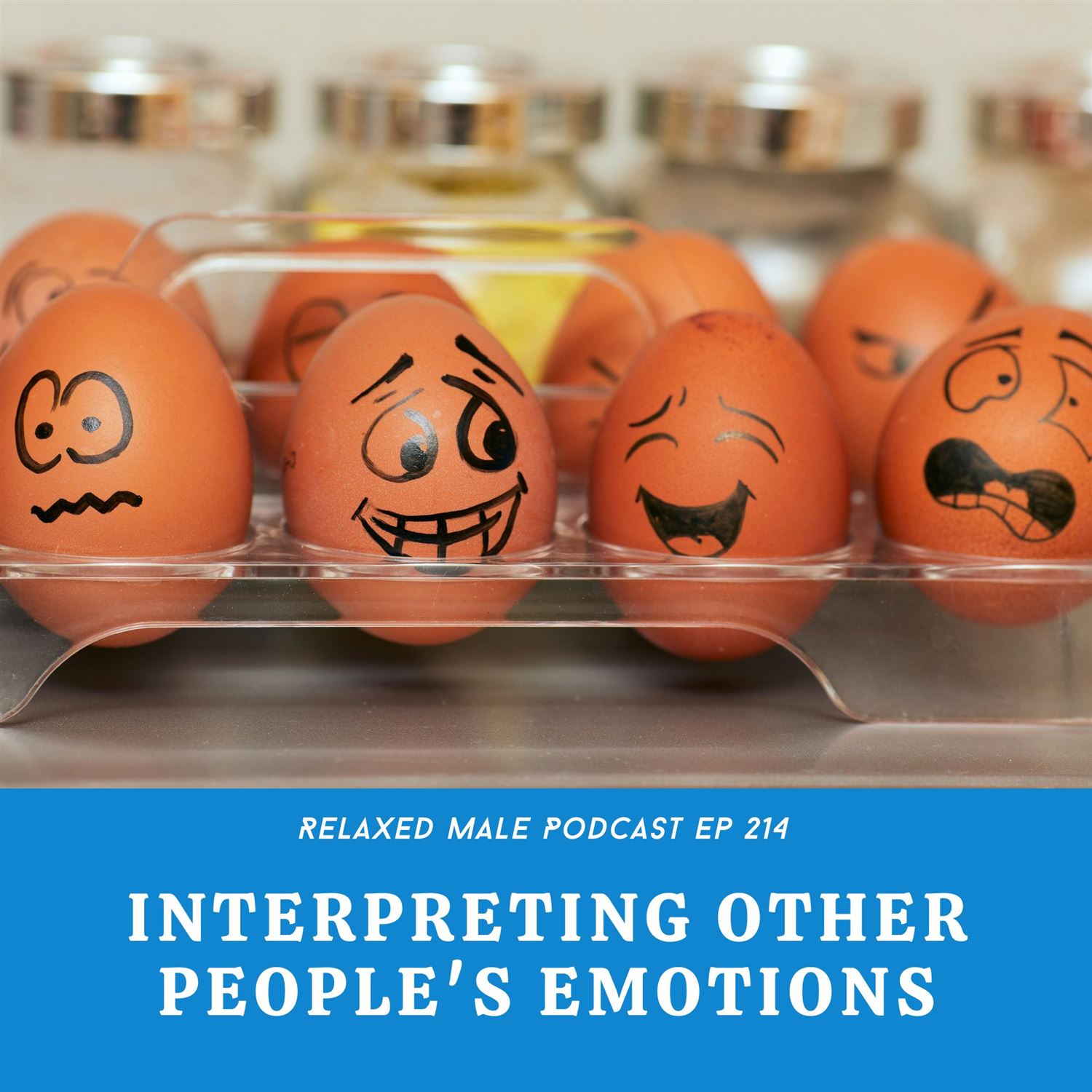
The Trouble With Interpreting Other People's Emotions
 2024-02-01
2024-02-01
Many times we experience the circumstances that are other people's emotions. We people have emotional breakdowns at times. We often get ourselves into trouble for things we have no control over or any effect on if we try to change it. We often will get ourselves into more trouble if we try to change the other person's emotions.
What is an emotion?
Many people want us to use their manual on how to behave around them, and that works at times but people don't like to be manipulated all the time.
What do we make other people's emotions mean?
The truth of those emotions
So we aren't supposed to care about how other people feel?
No, but we put way too much stock in what we believe those emotions mean.
In this conversation, we discuss the universal nature of emotions and how people tend to put their emotions on display, which can lead to reactions from others. We introduce ourselves as Brian, a certified men's coach who helps men navigate through life challenges and become better leaders. We talk about the purpose of the show and express gratitude for the listeners. We also encourage listeners to share the show with others. We then dive into the topic of other people's emotions and how it can be a struggle, using the example of a wife getting angry. We explain the concept of the model, which involves examining the circumstances, thoughts, and emotions in a situation. We provide various emotions that could arise from a door-slamming incident and conclude by questioning the definition of a "slam."
Next, I talk about how emotions are subjective and can often be misunderstood. I share a personal example of how my passionate speaking style can be misconstrued as yelling by my wife. I emphasize that most of the time, a person's anger or emotions have nothing to do with us and are a result of their thoughts. I discuss the model of circumstances, thoughts, feelings, actions, and results, explaining how our thoughts create our emotions, which in turn lead to our actions and results. I highlight the problem of non-digital thinking, where we try to avoid certain emotions and end up causing more problems. I emphasize the importance of understanding and examining our emotions without resistance, even the negative ones like jealousy, to better understand ourselves.
We then discuss how emotions are often displayed through our actions and body language. For example, when we're angry, we may scowl or sulk in a corner. Inaction is also a form of action, like not addressing a problem because of anger. Emotions can be challenging to control, which is why some people want a manual to help them feel better. However, others don't really care about our emotional state. People may rebel against others trying to manipulate their emotions through manuals. The issue arises when we attach meaning to other people's emotions. For example, if we see someone having a meltdown, we may interpret it as them being angry because they didn't get their own way. Sometimes, people's true emotions come out when they're drunk. This is when masks come off, and they may exhibit unpleasant emotions. Many people shy away from others displaying negative emotions, but we often try to fix the problem when it involves our loved ones' emotions.
It's about being fully engaged in the present moment and noticing the thoughts that arise in our minds. When someone else's emotions trigger a reaction in us, it's important to recognize that their emotions are their own and not something we can control. We may interpret their actions as a reason to get angry or upset, but it's essential to be aware of our own thoughts and emotions at that moment. For example, I share a personal anecdote about interpreting my wife's sigh during an intimate moment as a sign of disinterest, which affected my own arousal. I later realized that her sigh may have been a momentary shift in her thoughts and not a reflection of her feelings toward me. I suggest that many men, particularly from my generation, struggle with porn-induced erectile dysfunction due to a lack of intentional focus on their thoughts. To overcome this, I emphasize the importance of being present with our bodies, paying attention to sensations and emotions, and letting go of unhelpful thoughts. I conclude that by practicing mindfulness and staying focused on the present, we can better understand our own reactions and choose how we respond to others' actions and emotions.
When we pay attention and are intentional with our thoughts and emotions, we have more pleasant interactions with people. We can sit with and examine our unpleasant emotions and understand why they are not as scary as they seem. Emotions originate from thoughts and we have a wide range of emotions that make us human. We don't have to let other people's emotions control us, as we have the power to control our own emotions. It's important to understand and control our own emotions before trying to understand and respond to others. Taking the time to acknowledge our emotions and apologize for any wrongs can lead to better connections and understanding with others. We should be intentional with our actions and not use distractions, like playing video games, to avoid unpleasant emotions.
At the beginning of the conversation, we expressed the importance of paying bills, even though it is not necessary. We mention that we and our spouse have discussed the issue and resolved it by voicing our concerns. We advise listeners to step away from heated arguments and take time to cool down and regain control of their thoughts. We emphasize the importance of intentional and effective communication for a better relationship. If listeners need assistance, we suggest setting up a consulting call with us. We explain that becoming a differentiated person, living as individuals while enjoying each other's company, can lead to a better life and relationship. We humorously mention the need for acceptance of each other's flaws. We offer a special coaching opportunity and encourage listeners to visit a specific website for details. This coaching package is currently free, but we mention that the price will increase for future participants. We also mention the importance of sharing the podcast and being part of the growing community. We end with gratitude and encourage listeners to take action.
More Episodes
 2022-05-19
2022-05-19
 2022-05-12
2022-05-12
 2022-05-05
2022-05-05
 2022-04-28
2022-04-28
 2022-04-21
2022-04-21
 2022-04-14
2022-04-14
 2022-04-07
2022-04-07
 2022-03-31
2022-03-31
 2022-03-24
2022-03-24
 2022-03-17
2022-03-17
 2022-03-10
2022-03-10
 2022-03-03
2022-03-03
 2022-02-24
2022-02-24
 2022-02-17
2022-02-17
 2022-02-10
2022-02-10
 2022-02-03
2022-02-03
 2022-01-27
2022-01-27
 2022-01-20
2022-01-20
 2022-01-15
2022-01-15
 2022-01-06
2022-01-06
Create your
podcast in
minutes
- Full-featured podcast site
- Unlimited storage and bandwidth
- Comprehensive podcast stats
- Distribute to Apple Podcasts, Spotify, and more
- Make money with your podcast
It is Free
- Privacy Policy
- Cookie Policy
- Terms of Use
- Consent Preferences
- Copyright © 2015-2024 Podbean.com





